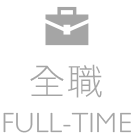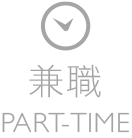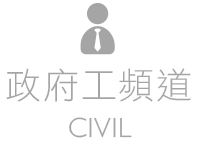
Interviews are a two way process and whilst, as the candidate, you’re probably feeling nervous, anxious and apprehensive, the interviewer is also experiencing a range of different feelings and asking themselves a range of different questions during the process.
We’ve all experienced an interview and we can instantly relate to the pre interview nerves but it’s harder to understand how the interviewer is feeling because the focus is always on the interviewee.
So here are a few things I, and most other employers are thinking during an interview.
“I really want to like you – there’s no need to be so nervous”
I’ve said it before and I’ll say it again; interviewers AREN’T monsters! They’re not sitting there hoping you’ll be terrible. They don’t spend the whole time wishing you’d trip up, so stop fretting so much! Of course you’re nervous, that’s natural. But there comes a point when you have to let go of these insecurities and think positively.
I can guarantee that most, if not all interviewers are hoping and wishing you are going to be great. The recruitment process is long, tedious and hard work. It’s every employers dream to come across the perfect candidate straight away! Go into your interview with this in mind and I promise you’ll perform so much better. When you’re comfortable, the employer is comfortable and you can start being the best, most professional version of yourself.
“Will you fit in?"
Whenever I’m interviewing a candidate, I’m mentally scoring them in my head not just based on how competent they are, how passionate, driven and enthusiastic they seem, how well they could do the job but also, how well they will fit in.
I’m employing someone to become part of my team so I need to make sure they are the kind of person my colleagues will want to spend their day with. A happy workplace is a productive workplace so it’s absolutely essential that the whole team enjoy working together, are efficient and effective.
“Do you really want this job? Do you know anything about us?”
It can be really difficult trying to decipher if a candidate actually wants this job or whether they’re just fed up of their current role and want something to tide them over.
Nobody wants to feel like a last resort, employers want you to make it obvious just how much you want it. We want dedicated employees who enjoy and want to do their job. So if I ask you why you want the job and why, out of everyone else, I should give it to you, be genuine and tell me the truth. Tell me “James, I know I can do the job – I’ve shown you that. But more than that, I know I want it more than anyone else you’ve seen. I’m passionate, I’ll work hard and I want to learn.”
Make me believe you and it’s yours.
You can always check how dedicated a candidate is by testing their knowledge about the business. How much research have they done? Do they know who our main competitors are? Have they checked whether we’ve won any awards recently? What do they think of our product/service?
Quickly scanning the website isn’t enough; get your pen and paper out and make notes. Understand their ethos, note their business motto, familiarise yourself with potential future colleagues, check out if they’ve had any press recently. Drop these details into conversation and I’m automatically impressed.
“I wish you wouldn't ask generic questions – ask me something useful!”
Last, but certainly not least, it comes to question time. This is one of the most important parts of the interview because it gives you a chance to gain some extra knowledge. Firstly, the interviewer is hoping you will ask a question and not just dismiss the invitation (this always ends badly) and secondly, their hoping you ask something interesting and beneficial to you, not just a generic question you’re asking just for the sake of it.
Use this time to your advantage.
Source








